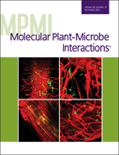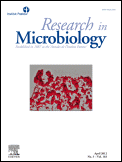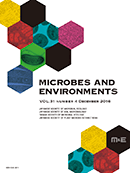
SYMBIOSIS
Scope & Guideline
Advancing Knowledge on Symbiotic Interactions
Introduction
Aims and Scopes
- Symbiotic Interactions:
The journal covers a wide range of symbiotic interactions, including mutualism, commensalism, and parasitism, among various organisms such as plants, fungi, bacteria, and animals. - Microbial Ecology:
A significant focus on the role of microbial communities in symbiotic relationships, particularly how these microbes influence host health, growth, and environmental resilience. - Plant-Microbe Interactions:
Research on how plants interact with mycorrhizal fungi, rhizobia, and other microorganisms to enhance nutrient uptake, growth, and stress tolerance. - Endophytes and Plant Health:
Exploration of endophytic microbes and their roles in promoting plant health, enhancing growth, and providing stress resilience. - Evolutionary Dynamics:
Investigating the evolutionary implications of symbiotic relationships, including co-evolution and host specificity among symbiotic partners. - Applications in Agriculture and Biotechnology:
Research aimed at applying findings from symbiotic studies to agricultural practices and biotechnological innovations for sustainable crop production and ecosystem management.
Trending and Emerging
- Multi-Omics Approaches:
An emerging trend is the application of multi-omics techniques (genomics, transcriptomics, proteomics) to study symbiotic interactions, providing deeper insights into the molecular mechanisms underlying these relationships. - Microbiome Studies:
There is a significant rise in research focusing on microbiome diversity and its impact on host organisms, particularly in understanding how microbial communities contribute to health and resilience in plants and animals. - Climate Change and Symbiosis:
Research on how climate change affects symbiotic relationships is gaining traction, with studies exploring the resilience of symbiotic systems under changing environmental conditions. - Innovative Agricultural Practices:
The integration of symbiotic research into agricultural practices, particularly through the use of bioinoculants and sustainable farming techniques, is increasingly prevalent. - Interdisciplinary Research:
There is a growing trend towards interdisciplinary approaches that combine ecology, evolutionary biology, and biotechnology to address complex questions related to symbiosis.
Declining or Waning
- Traditional Symbiotic Models:
There has been a noticeable reduction in studies focusing solely on classic symbiotic models, such as those involving well-known plant-fungus or plant-bacteria interactions, as researchers increasingly explore more complex and multifaceted relationships. - Host-Specificity Studies:
Research concentrating on host-specificity within symbiotic relationships has become less frequent, possibly overshadowed by broader ecological and community dynamics that emphasize interactions within diverse assemblages. - Isolation Studies of Symbionts:
Studies that focus on isolating and characterizing individual symbiotic organisms are declining as there is a growing preference for integrative approaches that consider community-level interactions and multi-species dynamics.
Similar Journals

MOLECULAR PLANT-MICROBE INTERACTIONS
Exploring the Intricacies of Plant-Microbe DynamicsMOLECULAR PLANT-MICROBE INTERACTIONS is a premier journal dedicated to the exploration of the complex interactions between plants and microbes, providing a vital platform for researchers in agronomy, crop science, and plant physiology. Published by the American Phytopathological Society, this journal has been serving the academic community since 1988 and continues to be at the forefront of advances in molecular biology and plant-microbe symbiosis, with a notable impact factor reflecting its esteemed position in the field. As a Q1 journal in both Agronomy and Crop Science and Medicine (miscellaneous), and holding a significant ranking in the Scopus categories, it is recognized for publishing high-quality, peer-reviewed research that is essential for understanding and improving agricultural practices. Although it is not an open-access journal, it provides critical insights that facilitate collaborative efforts among researchers, professionals, and students alike. The journal’s objectives focus on enhancing our understanding of plant health, disease resistance, and ecological sustainability, making it a crucial resource for anyone interested in the intricate research landscape of plant-microbe dynamics.

CANADIAN JOURNAL OF MICROBIOLOGY
Pioneering Discoveries in Applied MicrobiologyThe Canadian Journal of Microbiology, published by Canadian Science Publishing, is a well-respected journal established in 1954 that serves as a vital platform for advancing knowledge in the fields of microbiology and related disciplines. With an ISSN of 0008-4166 and an E-ISSN of 1480-3275, this journal is recognized for its rigorous peer-review process and its commitment to disseminating high-quality research that spans applied microbiology, biotechnology, genetics, immunology, and more. Currently indexed in several prestigious databases, its impact factor and category quartiles highlight its significance, ranking in the top tiers of applied microbiology and biotechnology as well as other intersecting fields. The journal provides an essential resource for researchers, professionals, and students seeking to stay informed on the latest advancements and breakthroughs, facilitating collaboration and innovation in the microbiological sciences. Set in the dynamic landscape of academia from its headquarters in Ottawa, Canada, the Canadian Journal of Microbiology remains steadfast in its mission to promote research that addresses key challenges and opportunities within the microbiological community.

MICROBIOLOGY
Exploring Innovations in Applied MicrobiologyMICROBIOLOGY (ISSN: 0026-2617, E-ISSN: 1608-3237), published by MAIK NAUKA/INTERPERIODICA/SPRINGER, is a pivotal journal in the field of microbiological research, operating from the vibrant hub of New York, United States. With a focus on the intricate relationships and functionalities of microorganisms, MICROBIOLOGY serves as an essential resource for professionals and researchers dedicated to advancing the knowledge of applied microbiology and biotechnology. As of 2023, it holds a competitive Q3 and Q4 category ranking in Applied Microbiology and Biotechnology and Microbiology, respectively, reflecting its commitment to high-quality and impactful research. Although currently not open access, the journal extends comprehensive insights into critical topics that span environmental microbiology, clinical applications, and biotechnology advancements, making it a vital platform for disseminating innovative findings in this ever-evolving discipline. Researchers and students alike will find MICROBIOLOGY to be an invaluable addition to their academic and professional repertoire.

Phytobiomes Journal
Transforming knowledge into practices for environmental stewardship.Phytobiomes Journal, published by the American Phytopathological Society, is a leading open access journal that has been at the forefront of phytobiome research since its inception in 2017. With its robust impact factor reflected in its high rankings across multiple fields—achieving Q1 status in Agronomy and Crop Science, Ecology, Ecology, Evolution, Behavior and Systematics, and Plant Science—the journal stands out in presenting cutting-edge research that integrates biological disciplines to enhance understanding of plant health and productivity. The journal’s open access model ensures that research findings are accessible to a global audience, fostering collaboration and innovation in the fields of plant science, ecology, and phytopathology. With its strategic location in the United States and a commitment to publishing high-quality, peer-reviewed content, Phytobiomes Journal plays a pivotal role in advancing knowledge and practices that address the challenges in sustainable agriculture and environmental stewardship.

CORAL REEFS
Driving Insights into Coral Reef ManagementCORAL REEFS is a prestigious academic journal dedicated to advancing the understanding of coral reef ecosystems and promoting research in aquatic science. Published by SPRINGER, this journal has established itself as a leading platform in the field, with an impressive impact, ranked in the top quartile (Q1) for Aquatic Science in 2023. With its comprehensive focus, CORAL REEFS covers a wide array of topics, including ecology, conservation, and management of coral reefs, making it an essential resource for researchers, professionals, and students alike. The journal has been in continuous publication since 1982 and aims to foster collaboration and innovation among the global scientific community. Although not open access, access options are available through institutional subscriptions, enhancing the dissemination of groundbreaking research. The journal stands out for its contribution to understanding the complex dynamics of aquatic systems, solidifying its role in guiding future research and policy in marine conservation.

TRENDS IN MICROBIOLOGY
Empowering Researchers with Cutting-Edge Microbial KnowledgeTRENDS IN MICROBIOLOGY is a premier academic journal published by CELL PRESS, renowned for its high-impact research contributions in the fields of microbiology, infectious diseases, medical microbiology, and virology. With an impressive impact factor and a notable Scopus ranking—placing it in the top tiers of its categories, including a remarkable Q1 status in multiple disciplines—this journal is essential for researchers, professionals, and students aiming to stay at the forefront of innovative microbial research and ongoing advancements in pathogen biology. Since its inception in 1993, TRENDS IN MICROBIOLOGY has provided a platform for thought-provoking reviews and critical insights, fostering discussions that shape the future of the microbiological sciences. Based in the United Kingdom, TRENDS IN MICROBIOLOGY continues to lead the way in disseminating vital knowledge within the global scientific community.

Microbial Genomics
Elevating Academic Discourse in GenomicsMicrobial Genomics, an esteemed journal published by the Microbiology Society, is a leading platform dedicated to the rapidly evolving field of microbial genomics. Since its transition to Open Access in 2016, this journal has consistently aimed to promote unprecedented transparency and accessibility in scientific research. Based in the United Kingdom, Microbial Genomics serves a diverse international audience, providing an invaluable resource for researchers, professionals, and students interested in genomics, microbiology, and related fields. With impressive quartile rankings in 2023, including Q1 status in Epidemiology, Genetics, and Microbiology, alongside strong performance in other categories, the journal is positioned at the forefront of academic discourse and innovation. This journal's commitment to excellence is not only reflected in its rigorous peer-review process but also in its dedication to showcasing groundbreaking research that informs current practices and shapes future trends in microbial science. As researchers explore the intricacies of microbial genomes, Microbial Genomics remains an essential resource fostering knowledge and collaboration in the scientific community.

RESEARCH IN MICROBIOLOGY
Pioneering insights into the microbial universe.Research in Microbiology, published by Elsevier, is a prominent academic journal devoted to advancing the field of microbiology, encompassing a diverse array of topics including immunology, molecular biology, and biochemistry. Established in 1987, the journal has expanded its focus over the years, with a commendable impact factor reflecting its relevance and influence in the scientific community. Although it does not currently offer open access options, Research in Microbiology remains a crucial resource for researchers and professionals seeking to stay abreast of the latest findings and methodologies. The journal holds a respectable Q2 ranking in Medicine (miscellaneous) and a Q3 ranking in both Microbiology and Molecular Biology for 2023, highlighting its position within the scholarly landscape. With its base in France and accessible to a global audience, Research in Microbiology continues to foster scholarly exchange, making it an essential platform for the dissemination of impactful microbiological research.

Botany
Connecting researchers to the heart of ecology.Botany is a premier academic journal published by Canadian Science Publishing, dedicated to advancing the understanding of plant sciences and ecological systems. With an ISSN of 1916-2790 and an E-ISSN of 1916-2804, this journal has established itself as a respected publication in the fields of Ecology, Evolution, Behavior and Systematics, and Plant Science, reflected in its 2023 Q2 and Q3 rankings. Covering a wide range of topics, Botany is committed to fostering interdisciplinary research, promoting innovative methodologies, and disseminating significant findings from both theoretical and applied perspectives. Based in Ottawa, Canada, the journal is open access, ensuring that high-quality research is accessible to a global audience, thereby playing a crucial role in the dissemination of knowledge in the scientific community. With convergence years from 2008 to 2024, it continues to evolve alongside the scientific advancements in botanical studies, making it an essential resource for researchers, professionals, and students alike.

MICROBES AND ENVIRONMENTS
Connecting Microbial Insights to Environmental ImpactMICROBES AND ENVIRONMENTS is a prominent academic journal dedicated to advancing the field of microbial ecology, published by the Japanese Society of Microbial Ecology. Since its inception in 1996, the journal has provided a vital platform for disseminating innovative research and insights into the intricate relationships between microbes and their environments. With an impressive impact factor reflected in its Q2 rankings across multiple categories, including Ecology, Evolution, Behavior and Systematics, Medicine, Plant Science, and Soil Science, MICROBES AND ENVIRONMENTS is acknowledged as a significant contributor within the ecological and biological sciences community. The journal’s content, which spans over two decades of cutting-edge research, supports researchers, professionals, and students in enhancing their understanding of microbial functions and their critical roles in various ecosystems. The journal does not operate under an open access model, ensuring that submissions undergo a rigorous peer-review process that upholds its reputation for quality. Engage with MICROBES AND ENVIRONMENTS to explore the ever-evolving landscape of microbial research and its implications for environmental sustainability and public health.